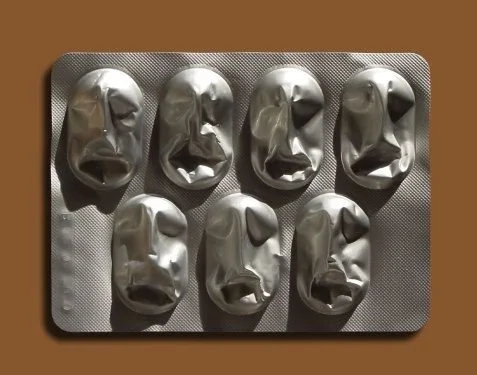PERFECT SKIN, AT WHAT COST? THE ISOTRETINOIN DEBATE
In the complex world of dermatology, few treatments have sparked as much debate and hope as isotretinoin. A journey toward blemish-free skin but one not without myths and precautions.
In a world where flawless skin often seems essential for self-esteem and social acceptance, severe acne stands as a painful barrier both physically and emotionally. Permanent scarring and the impact on the personal and social lives of those affected are undeniable. Within this landscape, isotretinoin a derivative of vitamin A emerges as a beacon of hope, a treatment that has proven exceptionally effective in the battle against this skin condition.
Since its introduction in the 1980s, this drug has transformed dermatology, offering a comprehensive solution for moderate to severe acne, such as nodulocystic acne and acne conglobata. Its mechanism of action is multifaceted: it shrinks the sebaceous glands, drastically reducing sebum production; it combats the acne-causing bacteria; reduces inflammation; and regulates skin cell cohesion. In essence, it attacks acne on all fronts. The result is acne remission in a high percentage of cases, preventing scarring and significantly improving patients' quality of life. The total treatment dose is calculated based on the patient's weight, and visible improvement typically occurs between 6 to 8 weeks.
MYTHS AND FACTS: WHAT YOU NEED TO KNOW BEFORE TAKING ISOTRETINOIN
Despite its effectiveness, isotretinoin has been the subject of controversy and myths, often fueled by incomplete information. The treatment has been directly linked to the onset of mental health disorders, raising concerns. However, experts point out that although some studies suggest a possible association between isotretinoin and depression, the frequency is low, and it remains unclear whether the drug is a cause or if the depression is a consequence of the acne itself since severe acne alone can trigger mental health issues such as depression and social phobia. In fact, by resolving acne, isotretinoin may actually alleviate such conditions. That said, for patients with a history of depression, it is recommended to undergo treatment with joint monitoring by a dermatologist and a psychiatrist.
Another common myth is the belief that its side effects can persist for years or even decades. In reality, most side effects are reversible and typically disappear within weeks of stopping the treatment. For example, dry eyes an issue for contact lens wearers usually resolves completely about a month after discontinuation.
A PERSONALIZED AND SUPERVISED CARE PROCESS
Isotretinoin is a powerful drug that must always be administered under strict supervision by a dermatologist. The most serious side effect is teratogenicity, meaning the potential to cause fetal malformations. For this reason, women of childbearing age must undergo pregnancy testing before and during treatment, and are required to use two effective forms of contraception, such as oral contraceptives and barrier methods, starting one month before treatment begins and continuing until one month after it ends. Fetal risk is not present if the male partner is the one undergoing treatment, though men are advised not to donate blood until a month after therapy completion.
The most common side effects are mucocutaneous: dryness of the skin and mucous membranes. Cheilitis (chapped lips) is almost universal. Patients may also experience dryness in the eyes and nose, which can lead to mild nosebleeds. The skin becomes more sensitive to UV radiation, making it essential to avoid direct sun exposure and use a broad-spectrum sunscreen. For this reason, the treatment is generally not prescribed during the summer months.
Less common but important side effects include elevated serum lipid levels (cholesterol and triglycerides) and liver toxicity. To minimize these risks, regular blood tests are required, and alcohol consumption must be completely avoided to prevent hepatotoxicity. Muscle aches may also occur, especially in individuals who engage in intense physical activity.
Isotretinoin is also prescribed for other specific cases, such as certain forms of rosacea, psoriasis, or photoaged skin. While primarily used for severe acne, some persistent mild-to-moderate cases have also shown good response to treatment.
Isotretinoin is not just a medication it is an ally on the path to recovering both skin and self-confidence. Through proper medical supervision, the risks can be minimized and the benefits of this revolutionary drug maximized. It represents a new approach to beauty and self-care one that prioritizes health and well-being over myths and urban legends.




